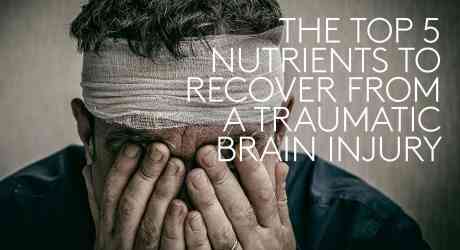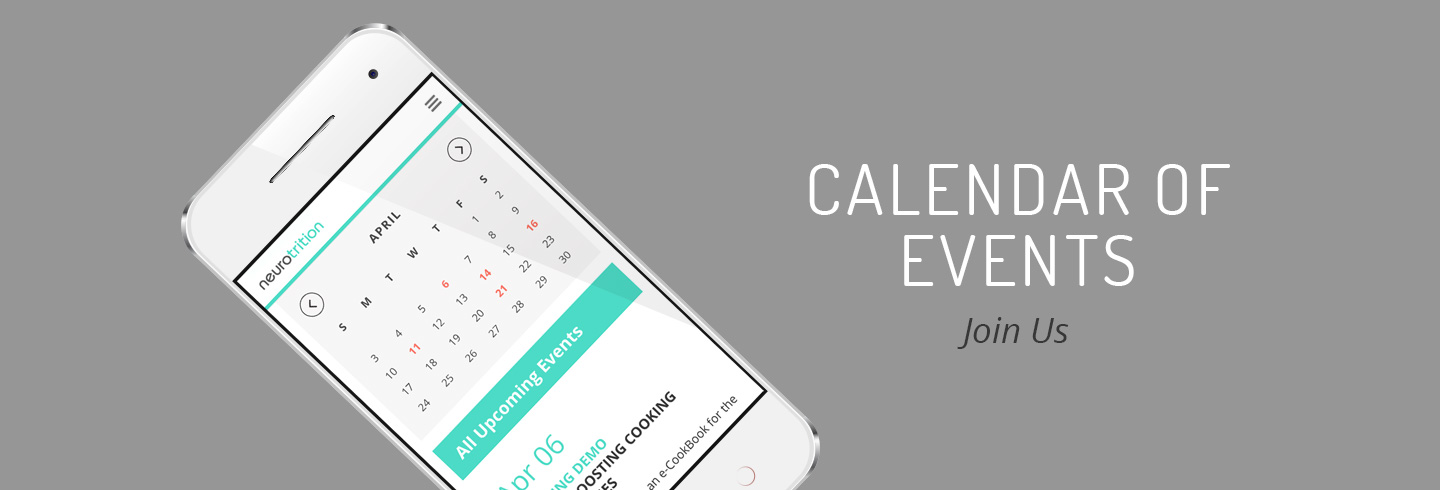3 Ways To Tackle Anxiety: Our Founder's Experience with the NeuroTrition Rx

Anxiety comes in many, many flavours, and can be debilitating in its own unique way. Generalized anxiety disorder (GAD), social anxiety, specific phobias, obsessive compulsive disorder, and post-traumatic stress disorder are the ways it can be diagnosed when it gets to the point in which a person seeks professional help. Anxiety shows no discrimination, and as the Founder of NeuroTrition, I have experienced my own personal battles with anxiety. It became one of the reasons I immersed myself in the science and research of mental wellness. This ultimately led me to create my company, NeuroTrition. A company that would help those who also struggle.
My flavour of anxiety is GAD, diagnosed at age 9. The child psychologist, who I was seeing at the time, explained to my mom that the anxiety I was experiencing, in her opinion, was a direct consequence of the very abusive home environment we were living in with my step-father. She explained to my mom that my anxiety would only get worse, and I would end up very sick. My mom left my step-father a few months later. And although my GAD was by definition “treated” by this, the seeds of anxiety had been sown and to this day I still struggle with it.
From a NeuroTrition perspective, we always aim to tackle the root cause of issues. We go beyond the Band-Aid for brain and mental health.
I work with a lot of clients who also have anxiety and anxiety disorders — every one of them with a unique story and unique mental health challenges. From a NeuroTrition perspective, we always aim to tackle the root cause of issues. We go beyond the Band-Aid for brain and mental health. Unfortunately, with anxiety, the root is often so very deeply planted. So I refer clients to a psychologist who specializes in anxiety, or in some cases, to a trauma specialist. And only after the root cause has been addressed, do I then apply the NeuroTrition Rx with clients, to tackle the neuro-nutritional angle.
3 Ways to Tackle Anxiety: The NeuroTrition Rx
1. Blood Sugar
We know that a stressed brain becomes a literal sponge for sugar. It’s how we have evolved. Way back in the Palaeolithic Era (a.k.a. The Stone Age), cavemen had to be able to outrun predators like sabre-tooth cats and dire wolves. Their bodies would enter into a “fight-or-flight” mode and all the sugar in their bodies was sent to the limbs so they could run as fast as possible to escape. Having deep thoughts would not have served them very well in those situations, so it’s a good thing that we evolved this way.
In our modern world, where we are chronically stressed out often by very first-world problems, this natural response is no longer serving us.
However, in our modern world, where we are chronically stressed out often by very first-world problems, this natural response is no longer serving us. Dr. Matthew Hill a member of our NeuroTrition Science Council, says we have literally out-evolved our stress response. As a consequence of always being stressed and anxious, we are riding a non-stop blood sugar rollercoaster.
Our NeuroTrition Rx for anxiety includes, at its foundation, balancing blood sugar. We recommend our clients eat breakfast within 1 hour of waking up, and then throughout the day — going no more than 3-4 hours without a small “mini-meal.” We also teach our clients about swapping out processed, refined simple carbohydrates for complex ones (all while making them taste really good), and the importance of always adding a healthy fat or protein to their carbs to further balance their blood sugar. To learn about the science behind why we suggest eating mini-meals and combining carbs, fat and protein, check out our blog about it, here.
2. Inflammation
According to research, a second consequence, and perhaps a root cause of anxiety (this is one of those chicken and egg scenarios), is inflammation. For some of us, our unique biochemistry and genetics create a hyped-up immune system which can promote anxiety. And for others, we may have been born with a perfectly great immune system — but life events cause an over-reactive immune system to develop which may promote anxiety (and I believe this is what happened in my case). Whether you were born with an over-reactive immune system or developed it, if you have anxiety, your immune system isn’t the happiest and you will have inflammation.
Anxiety is known to increase the inflammatory cascade, making anxiety worse.
On top of this, anxiety is known to increase the inflammatory cascade, making anxiety worse. So, our NeuroTrition Rx really focuses on nipping this in the bud by calming the inflammatory response through diet. We can help curb our clients’ inflammation in any number of flavours and diets ranging from FODMAPS to Paleo to Keto to low glycemic to Mediterranean to plant-based.
The key that ties together any of our anti-inflammatory protocols is the elimination of pro-inflammatory foods and an emphasis on anti-inflammatory ones. As a starter, think COLOUR - from real vegetables! And the greater the variety of colours, the better: purple (eggplant), red (beets), orange (sweet potato), yellow (ginger), green (kale), blue (blueberries) and all the shades in between! The colour pigments in our brightly coloured whole foods contain phytonutrients (aka. plant nutrients) and all of them studied to date have shown anti-inflammatory effects.
3. Nutrients
Is there a natural alternative to anxiolytic (anti-anxiety) medications?
I get asked this a lot, and it is a good question. Unfortunately, most nutrients take time to work because they need to build up in our bloodstream first (unlike some prescription medications). So is there a natural Xanax® or Valium®? I’m not sure. But there are a few specific nutrients that I like to recommend to our clients who struggle with anxiety that I’ve seen great results with.
- Magnesium. This is lovingly referred to as our “anti-anxiety” mineral, and I have had great success using it with our clients. I prefer to work with magnesium glycinate (over magnesium oxide or sulphate) because it is shown to have the least likelihood of causing diarrhea. I typically recommend 300 mg or 500 mg per day, depending on individual needs and co-existing issues. Please note: magnesium relaxes your brain, but it also relaxes your bowels, so when starting to take it we recommend you build up to what we call “bowel tolerance” by starting with half the dose for a few weeks.
- L-theanine. This is the active compound in green tea, and the part that I think is responsible for chilling you out. In fact, l-theanine helps make GABA (more on this chill neurotransmitter, below). I wish I could tell you that drinking a few cups of green tea will tackle your anxiety, but I just don’t know how much l-theanine it will provide you because not all green tea is created equal. So, to be sure, I do recommend a supplement. I don’t typically suggest that a client take magnesium and l-theanine together, but rather that they try magnesium first for a few months and if it doesn’t help then move to l-theanine.
- Probiotics. You’ve probably heard that the gut and the brain talk to one another. In fact, they gab with one another a LOT. All the time. And their communication significantly affects both our gut health and, you got it: our brain and mental health. From an anxiety perspective, traditional Western anti-anxiety drugs aim to boost a neurotransmitter called GABA. Kind of like how magnesium is our anti-anxiety mineral, GABA is our anti-anxiety neurotransmitter. Science is starting to tell us that certain species of gut bugs living inside of us can make GABA. So one way we might be able to manufacture our very own anti-anxiety medication (and minus the side-effects and dependency profiles) is to feed our microbiome. And that means through prebiotics and probiotics. If you want to learn more about your gut bugs, and what pre- and probiotics are, check out our blog, here.
About meds, though.
At NeuroTrition, we believe there is a time and place for medication, and we have the utmost respect for using them. One problem with medications we often see is that, even though they are intended to go one place and do one thing (in this case, go to your brain and reduce anxiety), it is never that simple or clean.
This mechanism of depleted nutrients may underlie some drug side-effects or may even exacerbate the imbalance the drug is intended to help manage.
One growing area that we work with is called drug-nutrient depletion, which is, as the name suggests, when medications deplete nutrients in our bodies. This mechanism of depleted nutrients may underlie some drug side-effects or may even exacerbate the imbalance the drug is intended to help manage. In the case of benzodiazepine medications for anxiety (Ativan®, Prosom®, Restoril®, Valium®, Xanax® and others), we know that they deplete calcium (among others). This not only can impact bone health but also brain and mental health because of the important relationship and required ratio between calcium and magnesium in the body.
Anxiety, no matter the type, can have a profound impact on your day-to-day life (trust me, I completely get it). Because each and every one of us is unique, so will your approach to treating your anxiety, so patience and self-compassion are key. But by finding your own individual balance through diet, lifestyle and possibly medication and counselling, feelings of anxiousness will improve.
An important note: we do not endorse going off any medications for brain and mental health cold-turkey. Rather, we believe that if our clients are interested in going off these medications, that it must be a slow and gradual weaning off of them under the supervision of their physician.










